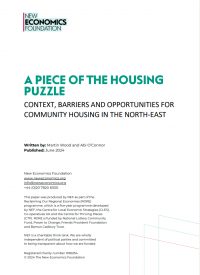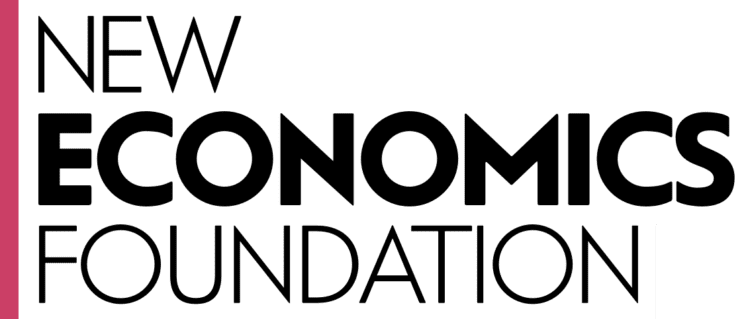Context, barriers and opportunities
Given the current extreme pressure on safe and affordable homes, community provision of housing is now re-emerging as an option for communities across the country. A significant decline in the social housing sector since the early 1980s, and the ongoing right to buy, has continued to remove affordable, secure, and accessible housing options. Over the same time, private rents have increased well above inflation while 23% ofprivate renters live in poor quality and poorly insulated homes. Currently, at least 8.5 million people are in acute housing need, with record numbers on social housing waiting lists, in temporary accommodation, and experiencing homelessness.
The intensity of the housing crisis and the need for locally led responses is an issue which drives support for increased devolution. In March 2024, the leaders of the seven local authorities that make up the new North East Combined Authority (NECA), signed a devolution deal with the central government giving them wide-ranging powers, including over housing. In this context, it is important to identify how and where support can be offered for community-based initiatives that deliver outcomes better than the existing housing provision. The north-east’s experience of the housing crisis is worsening rapidly. In 2023, the highest number of residents in a decade were on the social housing waiting list, increasing by over 50% on average since 2022. In Sunderland specifically, this increase was a staggering 523%.
Report on community-led housing solutions
Research within the Reclaiming Our Regional Economies (RORE) programme looked at potential community-led housing solutions at a local level which can meet local needs. The findings and recommendations are published in a report, A Piece of the Housing Puzzle.
Drawing on the lived experience of those involved in community housing initiatives, we found that while current community housing activity is small, there is an appetite for community housing in the north-east. However, the report shows that significant barriers exist which prevent community housing projects offering long-term sustainable alternatives to existing housing tenures. Most significantly, financial instability pervades the sector, with the lack of secure funding for housing projects curtailing their success and longevity. Relatedly, the small scale of community housing initiatives and the current inability to expand due to funding and capacity were evidenced as significant barriers. That said, key themes also emerged which show how the sector can work more effectively to achieve housing equity and the motivations for this. These centre on collaboration, sharing best practice and addressing the inequalities which permeate both community organisations and access to safe, secure and affordable housing.
Findings and recommendations
The RORE research addresses a gap in understanding of the potential role that community housing can play in the north-east. Crucially, our findings identify key policy levers that the central government can use to elicit positive change at both combined and local authority levels. From here we developed a comprehensive set of recommendations targeting stakeholders at different institutional scales, which will support the expansion and longevity of the sector. In doing so, this research identifies some potential solutions to localised housing stress.
Part of the Reclaiming Our Regional Economies (RORE) programme, a five-year programme developed by NEF, the Centre for Local Economic Strategies (CLES), Co-operatives UK and the Centre for Thriving Places (CTP). RORE is funded by National Lottery Community Fund, Power to Change, Friends Provident Foundation and Barrow Cadbury Trust.
Click on the image to download.

